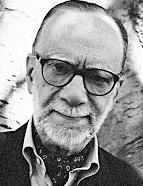

He left for Paris on a French state scholarship in 1959 (until 1962), studying with Pierre Francastel at the École Pratique des Hautes Études.He earned his PhD in History from the University of Paris in 1962 (Une Ville des Lumières: la Lisbonne de Pombal) and a PhD in Letters and Human Sciences from the same university (Le Romantisme au Portugal: Étude de Faits Socio-Culturels).
Regularly writing for newspapers and journals remained one of JAF's permanent activities, including the "Artistic Feuilletons" in the Diário de Lisboa (500 articles between 1968 and 1987), "Pintura e Não!" (part of the magazine Arquitectura,7 issues, 1969/70), as part of the reorgani s ation of the Portuguese section of the A.I.C.A (Association Internationale des Critiques d'Art), of which he was elected the first president; Art d’Aujourd’hui (1960/70); and Colóquio/Artes,which he directed from 1970 to 1996, publishing hundreds of articles. He co-organi s ed, directed, and contributed numerous articles to the Dicionário da Pintura Universal [Dictionary of Universal Painting] (Estúdios Cor, 1959/73). He also founded the Galeria de Março [March Gallery] (1952/54) w ith Fernando Lemos,where he presented numerous exhibitions, including the first national salon dedicated to abstract art.
After the revolution of 25 April 1974, JAF embarked on a prolific academic career as a full professor at the newly established Faculty of Social and Human Sciences at the Universidade Nova de Lisboa [New University of Lisbon] where he created a speciali s ed Art History program me from scratch,offering master's (the first in Portugal across all scientific fields), doctoral, and undergraduate degrees. He supervised dozens of dissertations and theses, resulting in many of his students becoming art historians in Portugal.
